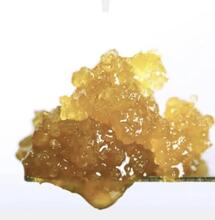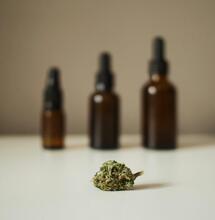Why Does Cannabis Make you Paranoid?

Cannabis-induced paranoia can show up in many ways. Examples include feeling fearful or self-conscious about what people think or feeling like someone or something is out to get you.
If you have experienced paranoia after consuming weed, you will know the feeling and how it makes you want to be alone, hide out or go to sleep.
A landmark study in 2014 confirmed that THC could trigger paranoia in individuals more inclined toward paranoid thinking: Fifty per cent of the volunteers given THC experienced paranoia, compared to 30% of the volunteers who received a placebo.
THC seems to interfere with how the brain processes random events, something called “abnormal salience”. Individuals are more likely to give extra importance to unexpected events and misinterpret them after taking cannabis. Other studies show that the likelihood of attributing significance to an event is increased when the individual is exposed to negative emotions such as fear and anger.
THC can also induce paranoid thinking through other means. The cannabinoid can activate endocannabinoid receptors throughout the brain, including in the amygdala, which regulates fear-related responses such as anxiety, stress, and paranoia.
Overstimulation of the amygdala leads to an onslaught of fear or anxiety-based responses. This over-activation of negative emotions can kick off paranoia.
As many as 51.4% of cannabis users have had paranoid thoughts when using cannabis. However, certain factors make some individuals more vulnerable to paranoia than others.
In the most extensive study on paranoia and cannabis, researchers told those taking part that THC may spark paranoid thoughts. Researchers have hypothesized that making participants aware that THC could trigger paranoia would make them less likely to misinterpret any random events whilst under the influence.
However, this revelation appeared to do the opposite in those told. It only created a self-fulfilling prophecy, where the idea that cannabis use can cause paranoia seems to create paranoia.
Other evidence demonstrates that when people are led to connect cannabis with paranoia, they are more likely to make a connection. Surveys have shown that people are likelier to report paranoia when prompted to define it fixedly. In contrast, when asked open-ended questions about their experiences with cannabis, only 6% report experiences with paranoia.
A 2019 study found that women experience the effects of THC at a lower dose than men and that women have an increased likelihood of experiencing adverse effects like paranoia following THC use.
To try and avoid paranoia, “start low and go slow.” If you’re inexperienced with cannabis, starting with a low dose is always advisable and waiting for the effects to kick in before consuming more.
As you become familiar with how the plant interacts with your body, adjust your dose slowly until you hit the desired outcome you want without unwanted effects, such as paranoia.
More on this topic from Soft Secrets:











